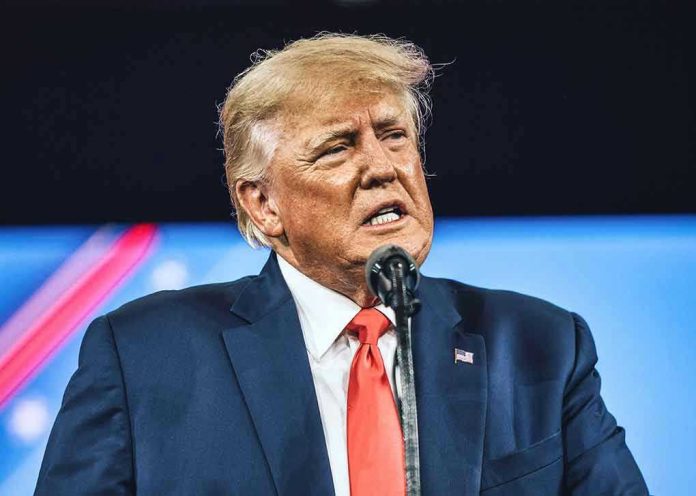
Democrats have ingeniously turned the tables on Republicans by using their own “America First” mantra to criticize a potential $20 billion bailout for Argentina.
Story Summary
- Democrats accuse Republicans of hypocrisy over foreign aid.
- The $20 billion bailout for Argentina is a central issue.
- The controversy is linked to the U.S. government shutdown.
- Sen. Elizabeth Warren’s bill to block the bailout was thwarted.
Democrats Challenge ‘America First’
Congressional Democrats are seizing a strategic opportunity to challenge the Republicans on their “America First” doctrine. The proposed $20 billion financial aid to Argentina, intended to stabilize its economy under President Javier Milei, has become a flashpoint. Democrats argue that this move contradicts the GOP’s professed commitment to prioritizing domestic interests, especially given the current U.S. government shutdown. They highlight the irony of Republicans choosing foreign financial interventions over addressing pressing national issues like healthcare and agriculture.
The timing couldn’t be more politically charged, as the discussions about the bailout coincide with a government funding impasse. The Democrats’ strategy is to paint the Republicans as neglecting American needs for foreign entanglements. As the government remains closed, Democrats are calling for an extension of Obamacare subsidies, further emphasizing their focus on domestic priorities. The juxtaposition of the bailout with the shutdown amplifies the Democrats’ messaging against what they see as Republican hypocrisy.
Senate Dynamics and Legislative Battles
Senator Elizabeth Warren has been at the forefront of the legislative battle against the Argentina bailout. She introduced the “No Argentina Bailout Act,” aiming to block the financial aid. However, the bill was blocked in the Senate, showcasing the complex dynamics at play. Despite this setback, the Democrats continue to use the proposal as leverage in ongoing budget negotiations. Senate Republicans find themselves in a precarious position, divided between supporting Trump’s foreign policy agenda and facing potential backlash over perceived neglect of domestic issues.
President Trump's $20 billion bailout of Argentina's economy has raised red flags in the U.S., especially among American farmers desperate for help dealing with a crop crisis triggered by his trade war with China. https://t.co/dUXd4QBYIM
— World News Tonight (@ABCWorldNews) October 15, 2025
The tension within the Republican ranks underscores the broader challenge of maintaining ideological consistency. Trump and his allies argue that the bailout aligns with strategic interests, supporting a leader like Milei who shares their economic vision. However, the internal GOP divisions reveal the potential vulnerability of their position, as they navigate the fine line between foreign policy ambitions and the “America First” doctrine.
Implications for U.S. Policy and Politics
The controversy surrounding the Argentina bailout has far-reaching implications for U.S. policy and politics. In the short term, it exacerbates partisan conflicts and prolongs the government shutdown. The situation also raises questions about the coherence of the “America First” narrative as it faces challenges from within. Long-term, this episode could influence U.S.-Latin America relations and set a precedent for future debates over foreign aid. It highlights the delicate balance between ideological rhetoric and practical policy decisions.
For stakeholders like American farmers and business groups, the potential bailout is a point of contention. Increased competition from Argentina could impact U.S. agriculture and trade sectors. Politically, Democrats aim to capitalize on the situation, using it as a bargaining chip in budget negotiations and as a talking point in upcoming elections. The controversy underscores the complex interplay between domestic politics and foreign policy, challenging both parties to reconcile their positions with their respective narratives.












